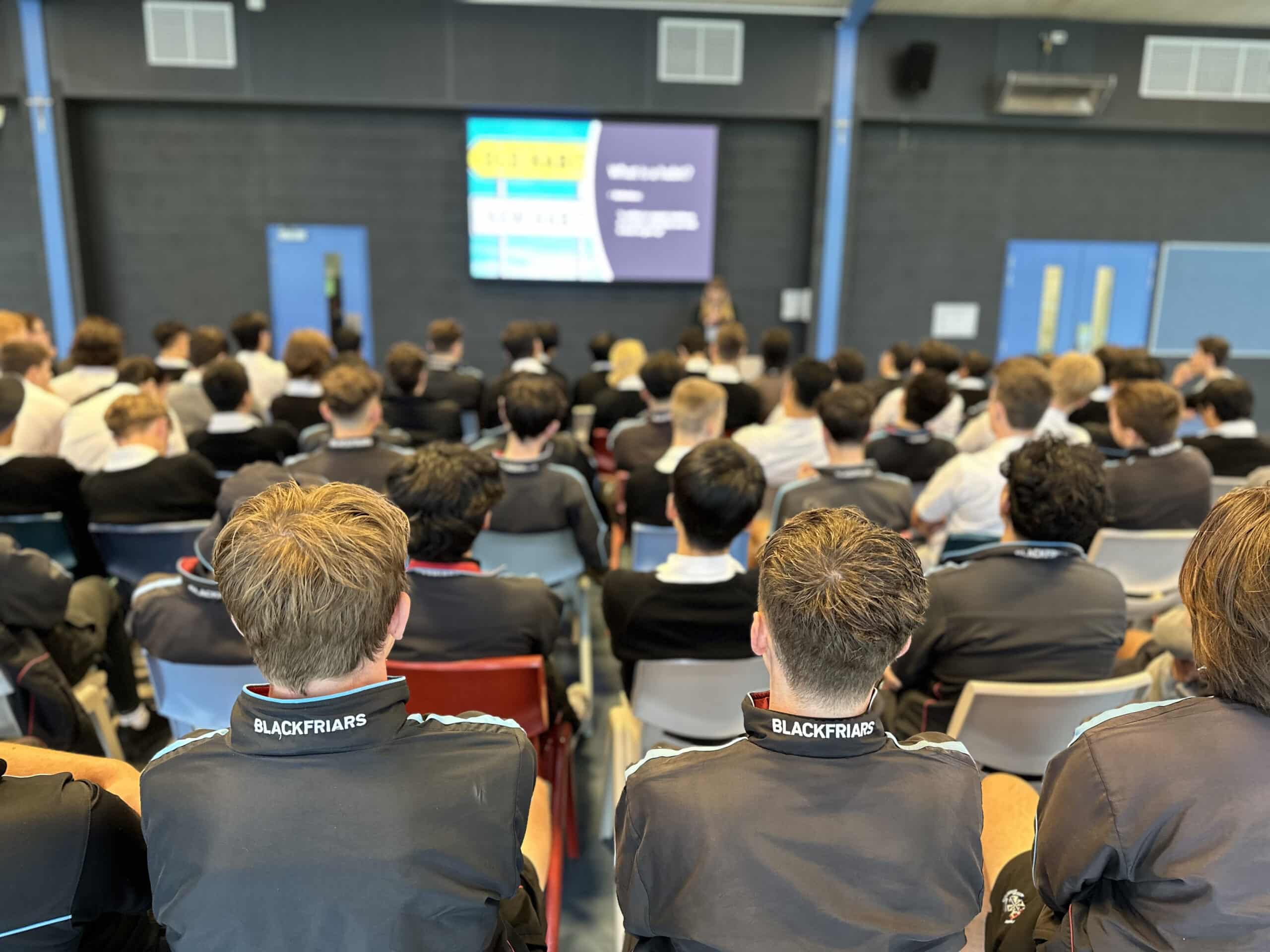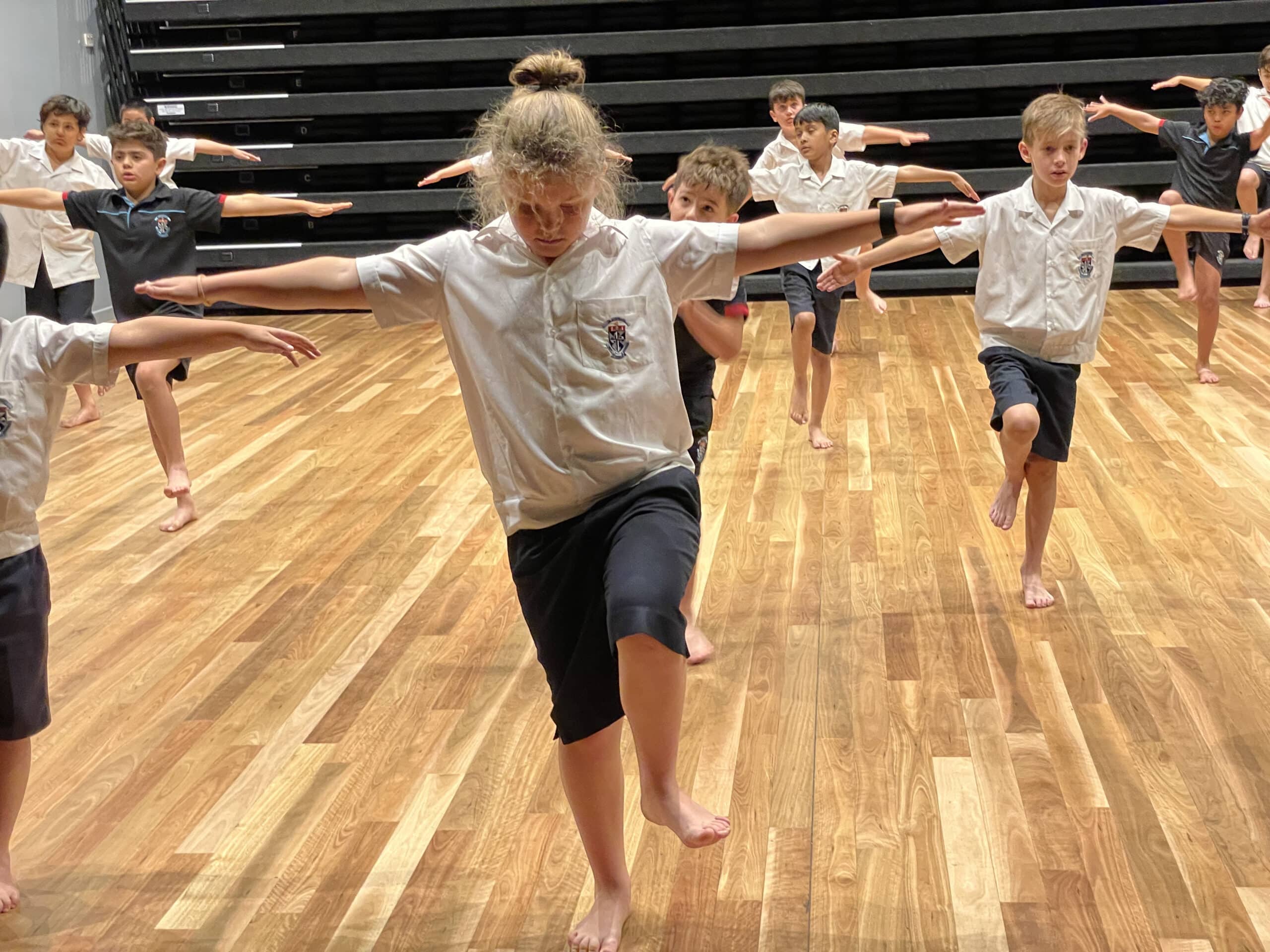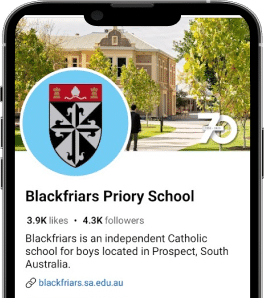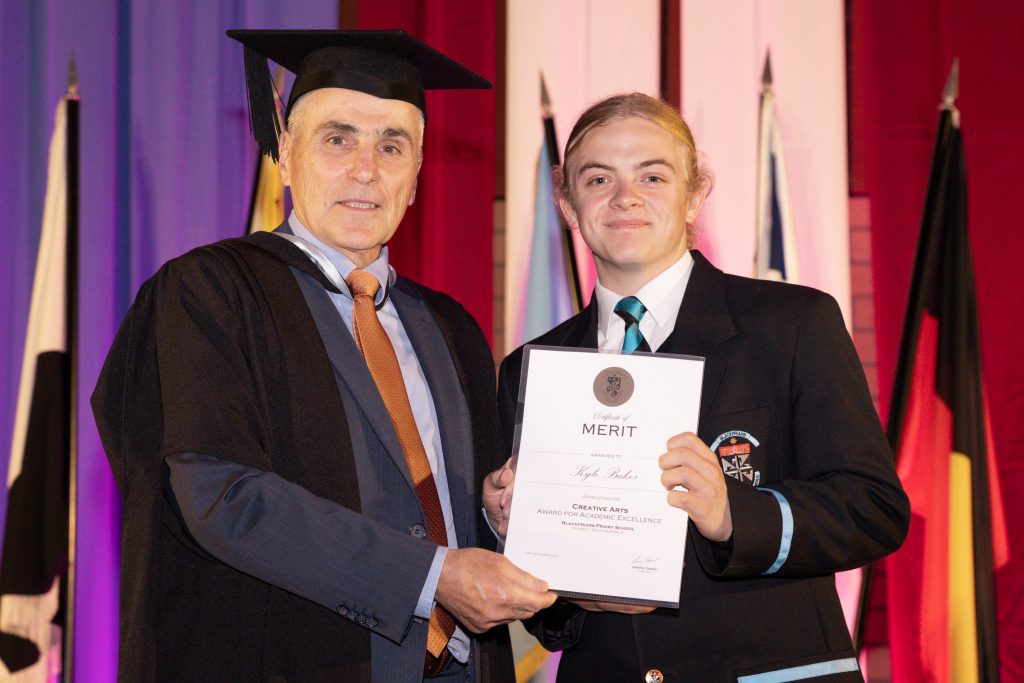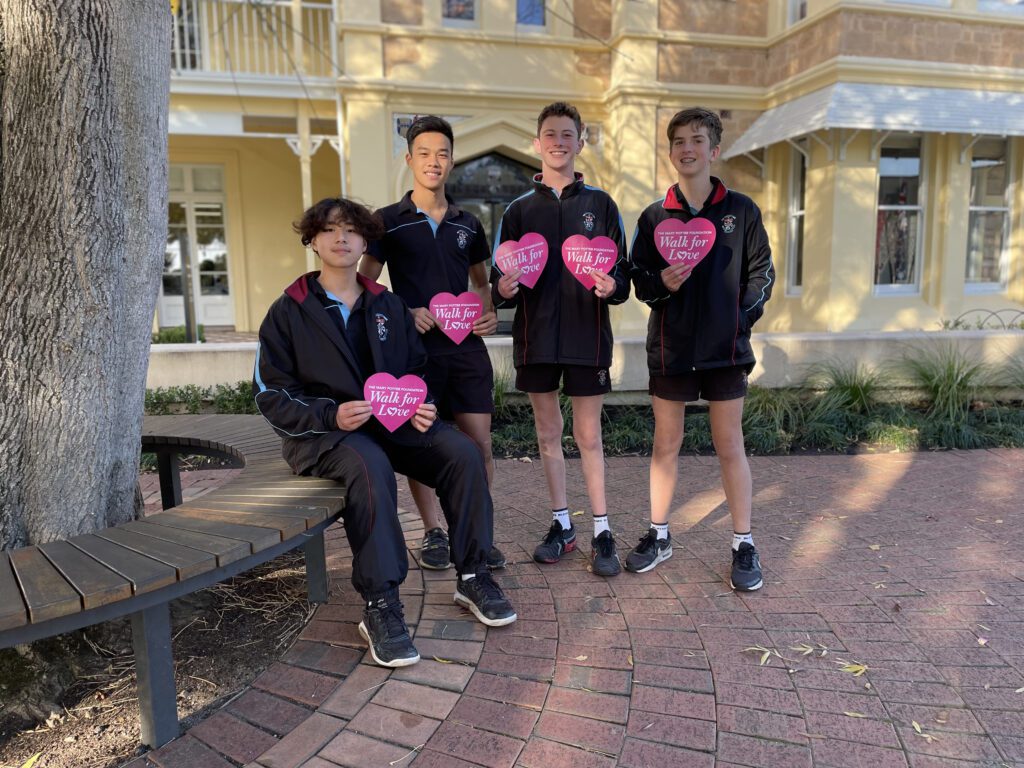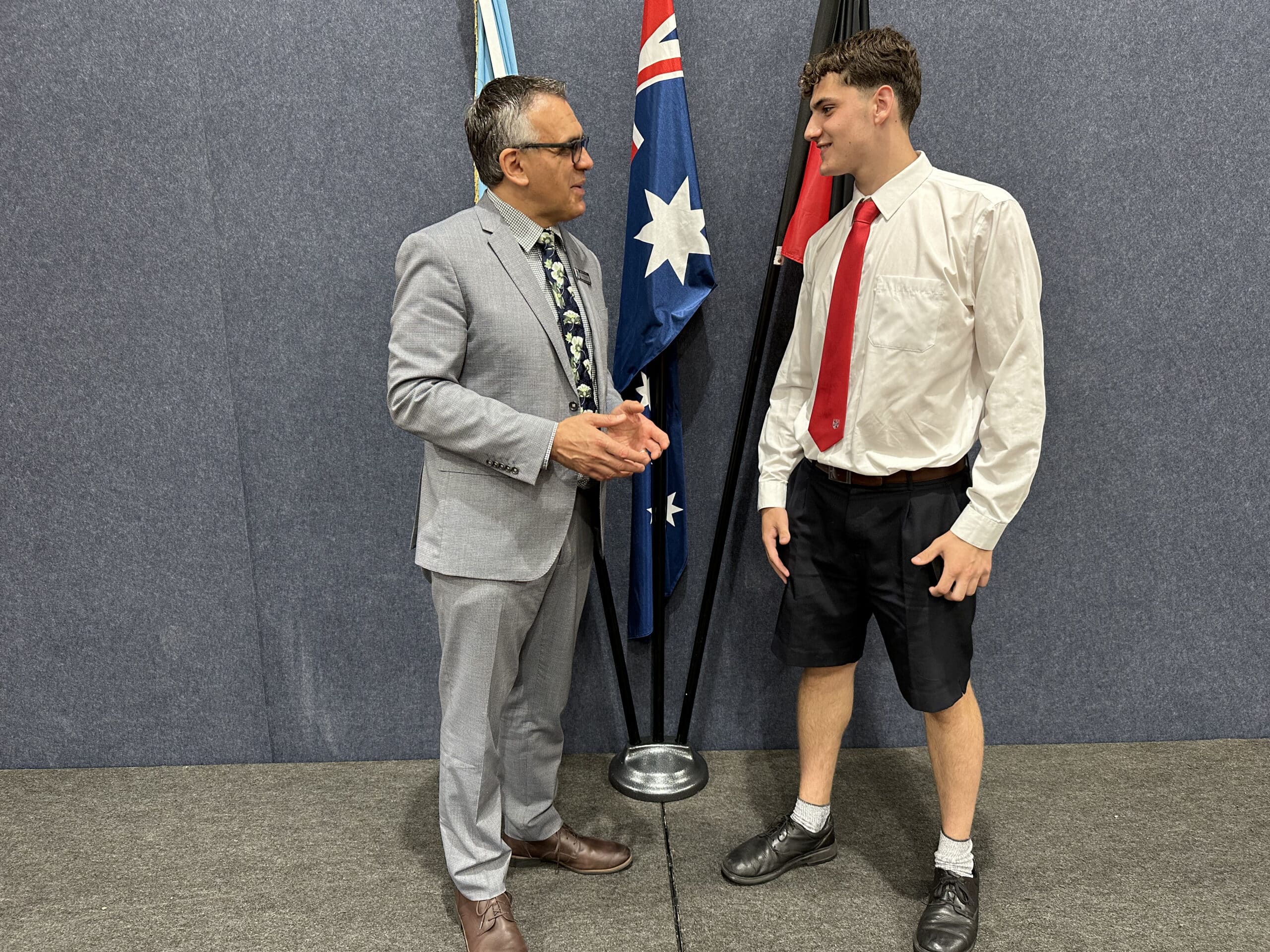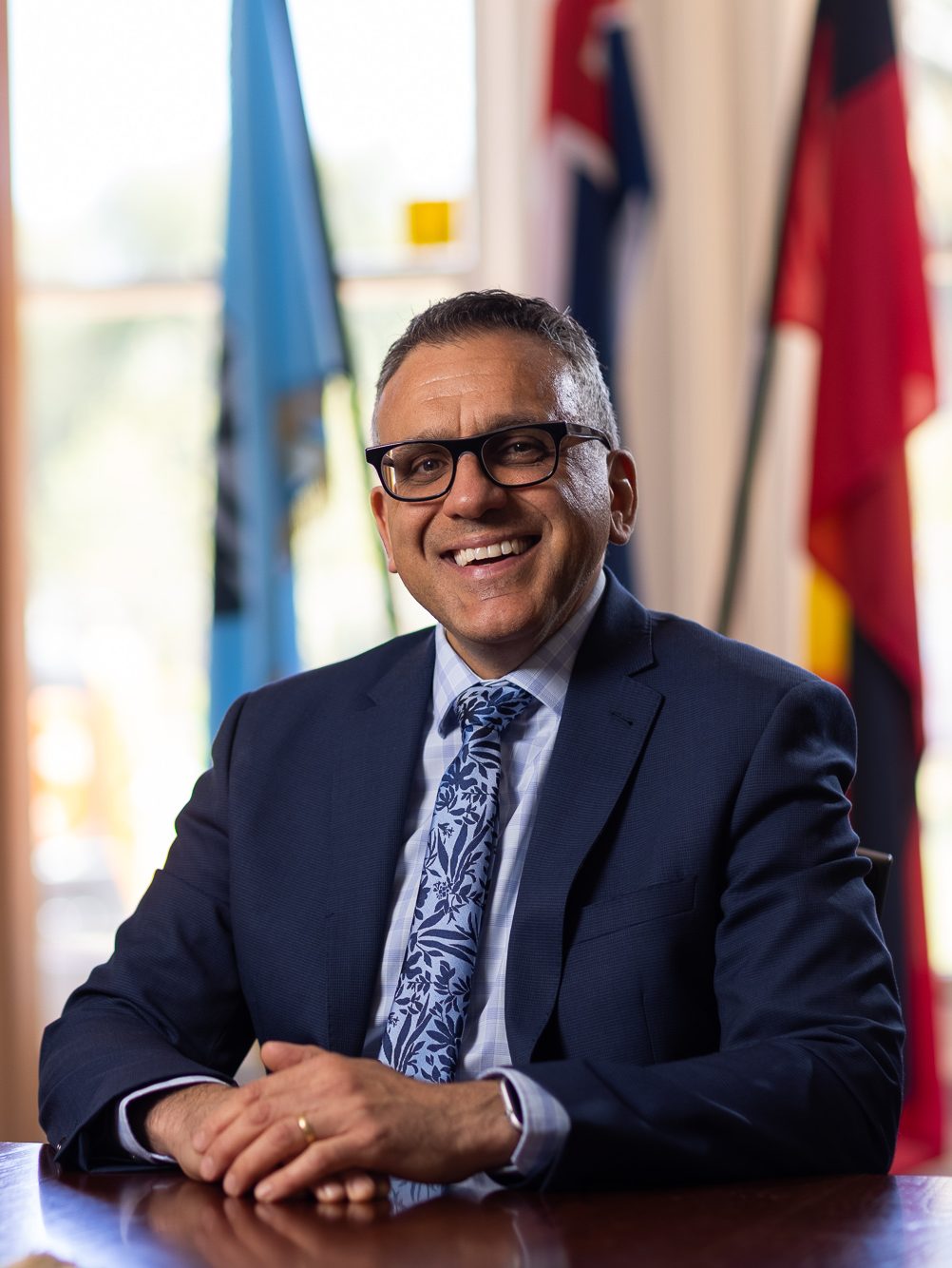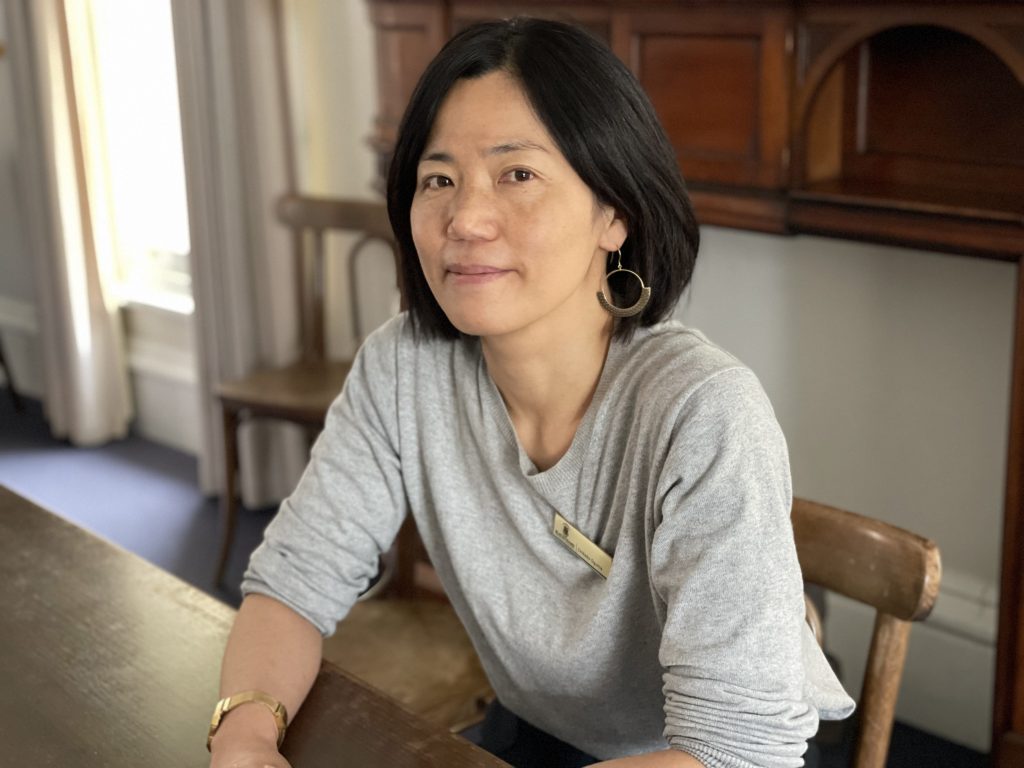Message to students: Make some time for good habits
As our Senior students say goodbye to school for 2023, they have been urged to use the summer holidays to develop some great new habits.
Blackfriars’ Psychologist Kristy Giles this week spoke with the incoming Years 11 and 12 boys about how to look after themselves – mentally, physically and spiritually – as they complete their schooling.
In her talk – “Looking after you: Healthy habits for the holidays” – Dr Giles said developing some good habits over summer was key to “optimising your physical and mental health as you enter Years 11 and 12”.
“When a behaviour becomes a habit, we do it almost subconsciously or automatically and once a pattern of behaviour becomes a habit, it is very difficult to stop a person from engaging in that behaviour,” Dr Giles told the students.
“This is why transforming behaviours that constitute healthy lifestyle choices into habits is excellent for our long term-health.”
The importance of sleep
Dr Giles stressed the importance of sleep and developing good sleep habits.
“Your body and brain operate on a 24-hour sleep-wake cycle,” she said.
“A range of processes occur in the brain, body and hormonally in order to facilitate this cycle. Going to bed and getting up at the same time each day can be helpful in regulating this cycle.
“If you regularly go to bed when you are not tired and lay there for an extended period of time, the brain may not develop the association between lying in bed and going to sleep. It is therefore best to avoid this behaviour.”

She also urged the boys to disconnect before bedtime.
“Our sleep cycles are very much impacted by the amount of light we are exposed to, particularly during the morning, but also throughout the day. It is important that you are exposed to morning sunlight in order to signal to your brain that it is day time.
“However, the blue light emitted by electronic devices also signals the same message to the brain, which can lead to a disrupted sleep-wake cycle. It is, therefore, really important that you turn off devices at least an hour before going to bed.”
Time to get moving
Dr Giles spoke with the students about the importance of regular exercise for body and “brain health”.
“Regular exercise is beneficial in helping with emotion regulation, that is helping you to stay calm and in control in the face of upsetting or frustrating situations,” she said.
“Exercise has been shown to improve memory, concentration and creativity. Therefore, for some people, engaging in regular exercise can lead to an improvement in academic performance as a result of gains made in mental ability.
“Finally, regular exercise is beneficial in increasing energy levels. So although you might feel too tired or too busy to exercise, engaging in regular exercise is likely to give you more time in your day before you reach the point at which you are too tired to be productive.”

Managing stress levels
Finally, Dr Giles urged the boys to ensure they took some time out for self-care.
“Self-care is any activity that you engage in that brings you energy and makes you feel good,” she said.
“It is important for everyone to engage in self-care activities in order to manage stress levels and reduce the risk of burnout and the development of mental health disorders. It is really important that going into Years 11 and 12 you are all engaging in some self-care activities.
“It is not something that you do as an excuse to procrastinate or get out of studying, but rather is an important way to reconnect with who you are as a person by engaging in something that you enjoy in spite of all of your competing demands.
“Self-care is different for everybody. It doesn’t have to be meditation, yoga, face masks and bubble baths if that is not what suits you as a person. Equally, there is no shame in doing these activities, so, if you believe that one or more of them might help you to reduce your stress, I encourage you to give it a go.”
Ask for help if you need it
Remember, if you ever need to talk to someone and you are not at school, or you are not comfortable speaking to a member of the Blackfriars counselling team, there are plenty of avenues for support and/or advice.
- Lifeline – 13 11 14
- Kids Helpline – 1800 55 1800
- Beyond Blue 1300 224 636
Rock and Water program introduced at Blackfriars
An innovative program to help develop students’ confidence and resilience and build respect will be introduced at Blackfriars in 2024.

